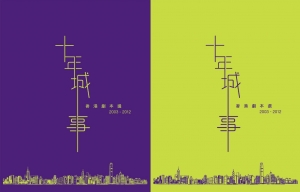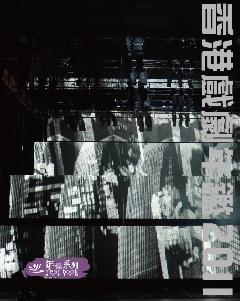One of the great attributes of Ibsen’s plays is that he created remarkable women characters. Hedda Gabler stands tallest among them. She is exceptional. The play that takes her name is nothing short of a masterpiece. Like the classical Greek play Medea by Euripides, Ibsen’s Hedda Gabler has evoked extreme responses, thus remaining his most controversial and provocative heroine. The play has also far greater depth than to suffer the usual arguments about sex and gender and yet the character had to be a woman. It has been said of Shakespeare’s Lady Macbeth that she is a man in a woman’s body. Similar things have been said about Hedda Gabler. It is as if they cannot possibly be ‘women’. In obvious or latent forms, this view, not surprisingly, still persists.
Ibsen could not have been more conscious about such biases, especially in his time, where any contrary act by a woman could be easily frowned upon, or worse incur excommunication by the society. Ibsen was a very perceptive man and essentially a humanist. He could internalise the world inhabited by his women characters and he sought to give them strength of their own accord even as they found themselves trapped and stifled by their bourgeois surroundings. Most complex of these women is Hedda Gabler: beautiful, proud, arrogant, willful, idealistic, romantic, philosophical and ultimately tragic. Only a consummate actress who must also cut a fine figure may ultimately do justice to her persona and to her flawed but complicated personality.
Awaiting the Cantonese production of the play at the New Vision Arts Festival in Hong Kong this year, I was wondering if Bonni Chan may be that actress. British director Adrian Noble, known for several productions, including his stint as the Artistic Director and Chief Executive of the Royal Shakespeare Company (RSC), was invited to direct the play. The stage design is simple and elegant - a white square box with transparent screens is the centerpiece of the action. Intended or otherwise it reflected the four-sided, box like architecture of the Studio Theatre at the Hong Kong Cultural Centre where the play was staged.
Almost all the action happens inside this white box with the screens mechanically lifted and dropped at the appropriate junctures. Apart from the entries and exits outside this white box and the study table positioned in one corner of the performing area, the climatic action most notably also happens outside the white box. This pristine white box seems to symbolically suggest the genteel life it harbours and no doubt fiercely protects while outside it is a world meant mainly for men. When Bonnie Chan’s Hedda finds herself outside the box, moving around and peering through the gauze, there is the inescapable realisation that she is not going to able to bear sharing her time with Judge Brack (Chan Wing-cheun) in it while George Tesman (Tang Shu-wing), her husband is away restoring Eilert Loevborg’s (Tommy Chu) notes with Mrs Thea Elvsted’s (Ivy Pang) help. It is a well-crafted scene that could actually take its time to unravel and intensify the climax.
Rose petals are generously strewn in and around the white box. Their deep red is in stark contrast, as if in rebellion against the engulfing whiteness. The touch of red is alluring. It is an ode to Hedda’s residual spirit, struggling against the sheer boredom of it all and is suggestive of the fiery passion she keeps bottled inside her. Vincent Pang’s sound design emphasises the dramatic tension at the beginning of the play with Schubert’s string quartet in C. The beauty of the play lies in its lines and in the silence that creeps between them. The most enigmatic sound in the play is after all the gun shot.
The production boasts of actors who are also respected Artistic Directors in Hong Kong’s theatre scene. Although all the actors including Amy Chum who plays Aunt Juliana Tesman and Mandy Yiu who plays the maid Bertha are very capable, it is Bonni Chan’s Hedda that commands the action. The ballerina turned actress is wanting in spite of her attractive gait, posture and her measured words. Bonni Chan’s Hedda is quietly haughty but the distant nature of her performance, while partly working for her character, does not lead to a more immersive and fuller experience. We see Hedda in her flesh but we do not feel her gut. Tang Shu-wing’s Tesman on the other hand evokes the earnest, naïve and ordinary academic husband while Chan Wing-Cheun’s Judge Brack subtly conveys hints of his predator instincts and exploitative powers accompanied by a sharp look.
There are moments when Bonni Chan hits the right notes as when she is pacing up and down or when she burns Loevborg’s manuscript, or when overcome, she plays the piano - the music offering an aural imperative to the turmoil Hedda must feel. Yet these moments swiftly disappear. We do not feel the tautness of the tension enough. The emotion without having to be overly dramatic remains curtailed. There is a certain restraint to the overall manner in which the production has been directed and it appears that Adrian Noble prefers the minimalist way where less could mean more. It is a very agreeable philosophy but if not tempered, can be isolating too. In the end we are left encountering Hedda’s tragedy but the catharsis does not come. The tragic moment passes us.
There is almost an anticlimactic feel to the gunshot; the moment is saved however by the sheer force of the act. It is Ibsen’s masterstroke that even the most feeble performance can still stupefy. In an earlier scene, we see Bonni Chan’s Hedda play with her gun and Judge Brack spying. Meaningfully no shots are fired except for one when Hedda catches the Judge spying. The artful poses that Bonni Chan assumes with the gun only convey the design of the scene and not its ethos. By then we know that Hedda Gabler is suffering from the banality of her existence but we are still removed from it. The sense of something terribly amiss is simply missing; the interiority of Hedda Gabler is not fully tapped into. Through the play we remain her peripheral observers. Few plays are as tragic as Hedda Gabler. Or as beautiful. I have yet to see a more resonant and a bolder production of this profound play. The Cantonese production under Mr Noble’s direction is far too reserved and far too safe.
本網站內一切內容之版權均屬國際演藝評論家協會(香港分會)及原作者所有,未經本會及/或原作者書面同意,不得轉載。








